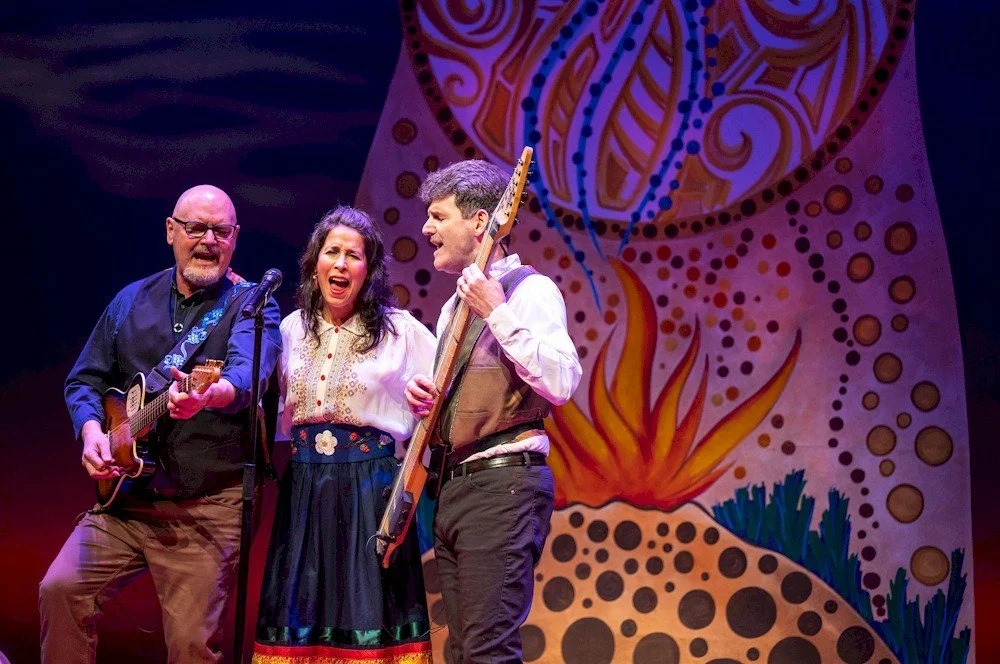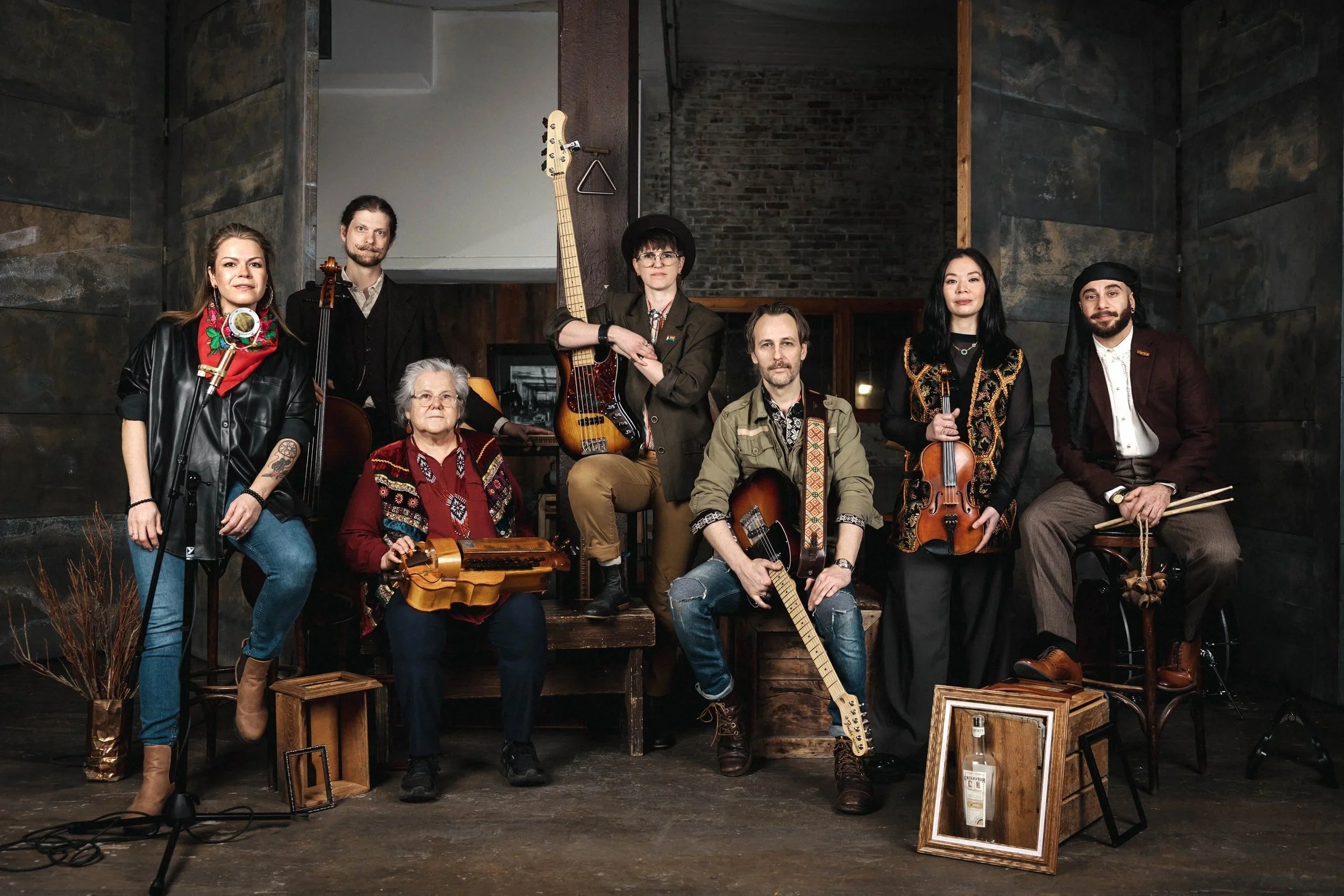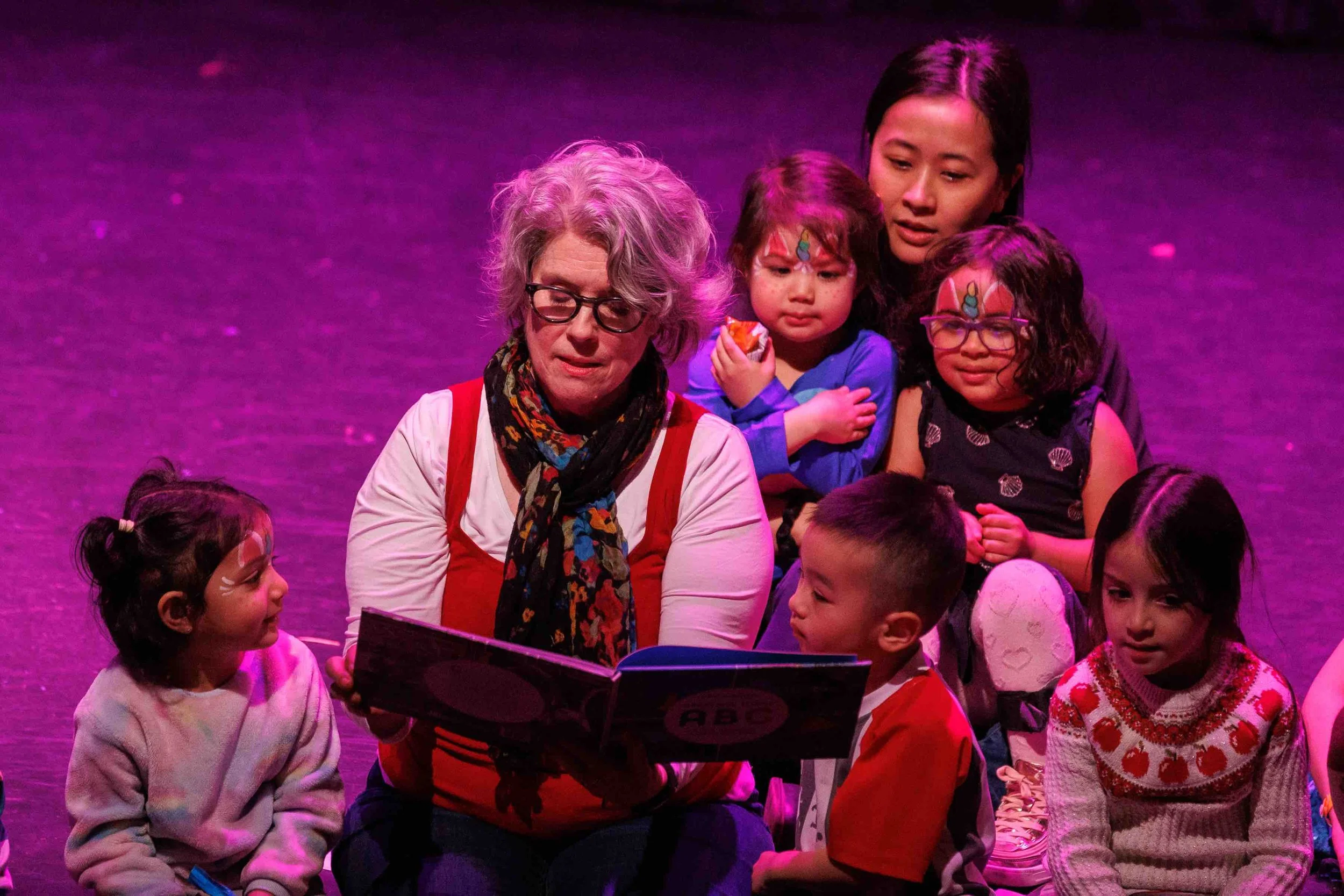Theatre review: Rubaboo gets to the heart of Métis culture
Andrea Menard invites audiences to participate in Métis language teachings and songs
Rubaboo. Photo by Dahlia Katz
The Arts Club Theatre Company and Grand Theatre present Rubaboo to April 30 at the Granville Island Stage
LIKE MANY METIS people, acclaimed singer-songwriter-actor Andrea Menard believes stories are best told with a warm bowl of stew. She continues the kitchen-party tradition in Rubaboo, which translates to “soup” in the Métis language of Michif. The production is a playful telling of Métis teachings and history through story and song.
In the family-friendly performance directed by Alanis King with musical co-direction by Robert Walsh, Menard engages audiences in the co-creation of a symbolic pot of stew, inviting them to participate in Métis language teachings and songs.
Accompanied by Walsh on guitar, fiddler Karen Shepard, and Chapman stick player Nathen Aswell, Menard (a five-time Gemini-nominated actor and a 15-time music award winner) shares the musical roots of Métis culture, from the drum to the jig. Seamlessly integrating cheeky Métis humour and stories of Michif triumph with stark insights into the dark legacy of colonialism in Canada, addressing topics such as residential schools and lesser-known road allowance communities, Menard creates an accessible experience highlighting one of the most resilient cultures in North America.
Menard’s story begins in the space that exists between life and death. Cimmeron Meyer’s vibrant set design includes three large pillars adorned with Anishinaabe-style art depicting the four elements, which seem to shimmer and move thanks to Kimberly Purtell’s lighting design. Mary Jane Coomber’s soundscape features a crackling fire, howling winds, and the haunting voices of Menard’s ancestors, which cry out in moments of spiritual communion. Menard, donned in traditional Métis attire of a ribbon skirt, beaded belt, and blouse (designed by Samantha McCue), shares some of the teachings passed down to her by her grandmothers related to spiritual well-being, or mino bimaadiziwin, which means “the good life” in Anishinaabemowin, alongside an impactful warning that we must restore the sacred balance of life following the disruption of ecosystems under the western mindset.
Blending a variety of cultural influences and languages, including Cree, Anishinaabe, Michif and French, Rubaboo is tale of frustration, love, and resistance. While inviting audiences to join in its songs and words, Rubaboo offers a holistic depiction of Métis identity and a joyous celebration of Métis culture.













